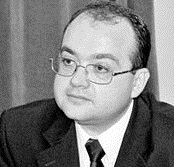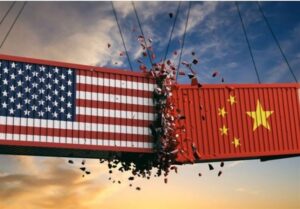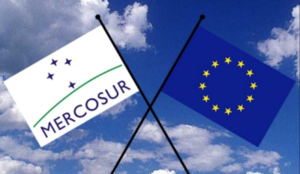- The question is not whether Romania’s ambiguous foreign policy, pro-American and pro-European, is correct and should be continued, for any lucid and minimally prepared mind can confirm this, but whether in the long run there might be pressure elements occurring to force a prevailing option, in one direction or another? In this analysis, I will precisely refer to the divergent scenarios and interests that in the more or less distant future could press Bucharest to undertake a predominant strategic option on the security side that would define the „centre of gravity” of our interests either in NATO (meaning relying on the United States) or in the European Union (mainly anchored in Berlin and Paris);
- Unfortunately, it is quite possible that we need at some point to get out of the „comfort zone of the foreign policy discourse” which has been working in the last 20 years, and in which it is enough to say that „We are on the side of all good people” and the strategic pillars for Romania are the United States, the European Union and NATO. It would have been too simple and beautiful if the unity of the West lasted forever, and we lived peacefully, without any foreign and security policy dilemmas;
- I am not saying that we are now in this situation because fortunately, we do not have to choose today between Washington and Berlin. On the contrary, after the success of the visit to Washington, the fact that President Iohannis goes next week to Berlin is a strong point for Romania’s foreign policy, which is increasingly becoming one of the few active bridges remaining between the two big powers of the Western world, especially following Brexit and after the European capitals that matter have started to clearly position themselves for or against the deepening of the European integration (see the relationship that Brussels has these days with Warsaw, Budapest or Prague). The perspective to which I am referring is therefore not immediate, but it could even go beyond the end of Klaus Iohannis’s second mandate, namely in 7-8 years, basically during the next generation of European and American political leaders;
- The European Union and the United States have undoubtedly started a historic process of political distancing, years before the Trump administration, despite the formalistic, reassuring denials of the European and American leaders. Emphasized in a massive literature on both sides of the Atlantic, the cooling and starting to break down transatlantic relationship have been analysed in relevant volumes that marked, for instance, the end of the George Bush Jr. era (see, for example, Jeffrey Kopstein and Sven Steinmo, Growing Apart? America and Europe in the Twenty-First Century, Cambridge University Press, 2008). In this regard, it is useful to note that negotiations for finalizing the TTIP, essentially the free trade agreement between the United States and the European Union, have been suspended as of 2016, that is, before the victory of the actual president from the White House, and that numerous protests against the agreement occurred in the Western Europe;
- Brexit and the election of Donald Trump unfortunately accelerated the EU-US gap, which led to the current exaggerated statements, the most recent of which was the one made by the uninspired European Commission President Jean-Claude Juncker who said a few days ago that „The foreign policy of the United States has fundamentally changed in recent years and we need to consider the strategic empowerment of the European Union„;
- The launch by the European Commission of the document on the future of the European Defence, for reflection and public debate, a few days ago, indicating a possible final purpose in the Defence and Security Union, has some positive aspects of opportunity but obviously tests the European public opinion on the broader idea of the European Union’s autonomy in terms of security in relation to the United States, an idea expounded more and more frequently by the German and French political leaders, to whom I still have some reservations;
- For Chancellor Merkel’s critics, who I see that are abounding among the comments made in Romania, I would only add that the alternative to Angela Merkel, the social democrats of Martin Schulz and Sigmar Gabriel, are indeed American sceptics, not to say otherwise. It is good for us to remember the statements made by German Social Democrats, including those of the actual Federal President Steinmeier about the American anti-missile shield at Deveselu. I did not and do not have the perception that Angela Merkel would be hostile to NATO and the United States, on the contrary. Not being a Donald Trump fan and being anti-American are totally different things.
*
After Washington, Berlin. Romania’s foreign policy marks one of the best periods in recent years, through the recent successes of ambivalent international profiling and the series of presidential meetings at the top of global politics, or at least the top of the Western United States-European Union binomial.
And yet, the risks to Romania and the region persist and even deepen in the current context of transatlantic disagreements. The remarkable „ballet” on the two great scenes of Western politics, which President Iohannis plays today, comes precisely as a reaction to the natural concerns of those from the Central Europe that the fracture of the transatlantic relationship could leave the Eastern Flank in the impossible situation to choose what is not to be chosen, that is to focus either on the alliance with the United States or the closeness to the French-German core. Losing either of the two components would be a disaster for Romania. Just a few hundred kilometres East of Bucharest, an entire Eastern Neighbourhood of the (still) integrated Western world is intensely experiencing the drama of remaining outside, without chances, without prospects of accession, without consistent support. The end of all kinds of illusions creates, from Belarus and Ukraine to Georgia and Armenia, a profound confusion that is bitterly reflected in the opinion polls, showing for example, how people across the Prut do not know whom and what to trust anymore, as they receive from everywhere, including their own capital city, only reasons for disappointment. Sometimes I believe we are not aware enough of the good luck we had between 2004 and 2007, when we succeeded to lift the Romanian flag twice in Brussels both in the NATO and the European Union courts.
Unfortunately, the consensus from the Cold War era vanishes. Different interests emerge. Russia is perhaps a threat to the Eastern Flank, but I do not believe it is still causing much anxiety in Germany, France, Italy or Spain. If it had not been Angela Merkel, European sanctions in response to Russia’s aggression in Ukraine would have long been eliminated by Matteo Renzi or Viktor Orbán. On the other hand, beyond what the officials would say to us, we must remember that the political perception of Donald Trump in Europe is disastrous and the EU will more and more insistently look for ways to distance from Washington. The statements in recent years have been so many and clear that I do not believe that anybody doubts this trend any longer.
I do not believe that Germany and France will significantly increase their contribution to NATO. On the contrary, to Trump’s fury, Berlin and Paris will pay less and less to the NATO budget, arguing that they are increasing their budget allocations to the European Defence program. They will probably spend more, perhaps more than 2%, but not to NATO and not to US weapons, but to European military technology. This is, in fact, where the apple of discord is found: the money. Both the Americans and the French want to sell their weapons, to secure substantial contracts for their important military industries. Directly said, will Romania have the financial resources needed to satisfy both NATO and future EU requirements on the European Defence side? I mean, OK, we are acquiring American Patriot missiles, but do we also have money for the French helicopters?
I can assume that this is the main reason why Germany, and especially France, are pushing (and they will do that increasingly stronger) toward the Union for Defence and Security within the EU. The reason is not political, in my opinion, related to any incompatibility with the values of the US policy but one that is fuelled by financial and budgetary reasons. The two big Western European powers, France and Germany, do not necessarily think about providing certain security guarantees, as NATO, that is, the United States, through the famous art. 5 of the Washington Treaty. Finally, even if they were to offer them, apart from NATO, it would remain to be seen who would „buy them”, because between the credibility of the American security guarantees (not even these are 100%, the discussion is much more complicated) and the possible French- German security, there would be no reason for us to deliberate too long, right? The history of the 20th century provides us with some good arguments in this respect.
Following the success in Washington, the level of our expectations for the Berlin presidential visit is highly increased. I happen to be next week, during President Iohannis’ visit and afterward, in Germany, where I will teach a foreign policy and diplomacy module to European Studies students at the University of Passau. According to the signals that I have from the local academic community, there is already an increased interest in Romania’s foreign policy and the future positioning of Bucharest in relation to the European Union and the United States, interest concentrated in the questions received in advance. It remains that Klaus Iohannis’s visit to Germany to provide the necessary answers, assurances and clarifications on the essential dimension of the Romanian-German relationship. We can only be honestly happy, in these difficult times, requiring a very convincing diplomatic representation of an „intellectual relevance”, beyond the bureaucratic techniques of the career diplomats, which are also useful to some extent, to have an ambassador with the stateliness of Emil Hurezeanu. As shown in a recent analysis of the European Council on Foreign Relations, „Germany has completed the long post-war period of reservation and is ready to take the lead in Europe„. Including the strengths and weaknesses of such a new strategy.
We do not have therefore a plan B. The pro-American and pro-European dimensions of Romania’s foreign policy should be maintained together, no matter how hard that will be in the years to come. Perhaps if we were, like Portugal, at the top of the Iberian Peninsula, we would not worry so much today. But our map and history force us to hold tight on both ropes.










